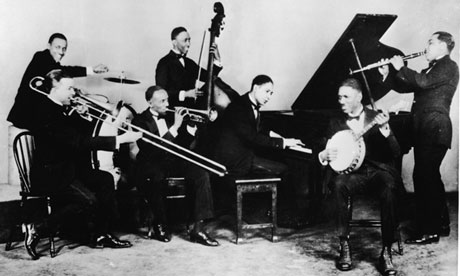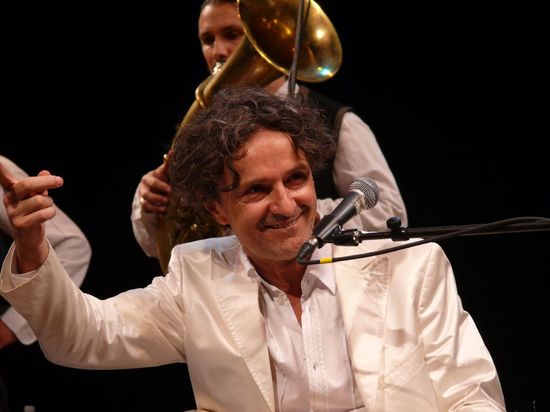By Laurie Dujardin
JAZZ: a genre of music that originated during the late 19th and early 20th century. It emerged in many parts of the United States of independent popular music styles, linked by the common bond of African American and European American musical parentage. Jazz spans a range of music from Ragtime to the present day, a period of over 100 years and has proved to be very difficult to define. Jazz makes heavy use of improvisation, polyrhythms, syncopation, and the swung note, as well as aspects of European harmony, American popular music, the brass band tradition, and African musical elements such as blue notes and ragtime. The birth of jazz in the multicultural society of America has led intellectuals from around the world to hail jazz as one of America's original art forms. As jazz spread around the world it drew on different national and regional cultures, giving rise to many distinctive styles. (Wikipedia)
Jelly Roll Morton, a creole, claimed to have invented jazz in 1902 in New Orleans, and there's plenty of evidence to support his claims. Prior to this, ragtime piano music accompanied silent films. The first jazz recordings came out of New Orleans, via New York, in 1917, and the new style quickly swept North America and Europe. It was adopted as the music of choice by "rebellious youth" and the JAZZ AGE was born.
Then came a massive migration of blacks and their music northward to industrial cities including Montreal, seeking work. Next came the U.S. prohibition of alcohol sales and consumption (1920-1933). I neglected to mention something many people don't know, that there was previously (1900-1916) a prohibition in Canada that was voted in province-by-province, EXCEPT in Quebec where it was resoundingly rejected.
So you can see the different elements coming together to make Montreal a major party town. There's also the proximity to the metropolis of New York linked by major railway lines and the Saint Lawrence Seaway. Americans (and Canadians) started coming by the droves as word spread about the love of partying and entertainments late into the night. Night clubs, dancehalls, burlesque cabarets and vaudeville theatres multiplied at a furious pace. Of course, that was closely followed by organized crime, with its gambling, prostitution, extortion and loansharking, etc. But all of these places employed jazz musicians and they just couldn't get enough of them. Black musicians were also attracted to Montreal because it didn't have the brutal segregation laws that existed in the U.S.

![140204-ps1[1].jpg](twelve/assets_c/2015/03/140204-ps1[1]-thumb-550xauto-7544.jpg)


Recent Comments